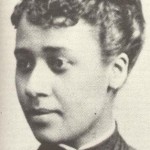- Sojourner Truth
- Anna Cooper
- Alice Walker
Full text: click here. (Stony Brook Net ID & Password may be required)
Quick Summary of the article: Dionne Rosser-Mims wrote an informative piece in the Advancing Women in Leadership Journal that takes a closer look at how years of race and gender discrimination impacted black women’s leadership.
Rosser-Mims traces black women’s leadership back to the days of slavery- specifically Sojourner Truth and Harriet Tubman, who she claims “exhibited unbridled leadership qualities (e.g., self-sufficiency, self-sacrifice, militancy with an egalitarian spirit, resilience, and spiritual grounding).” These women resisted what European males considered to be a “woman” and found natural leadership through their resistance.
Alice Walker introduced the meaning of the term womanist, which she coined “a feminist of color” because black women are concerned with struggles against sexism and racism. Historically, black women have struggled greatly with receiving power and positions of leadership due to being “confronted by both a women question and a race problem” as Anna Julia Cooper (one of the leading Black women to publicize a Black feminist agenda) stated. Cooper argues that “the process through which Black women activities acquire leadership skills” varies from black and white men and white women. Instead, black women leaders are fostered by political resistance and their role in family and community organizations such as “churches, schools and political organizations.” Modern civil rights activists Septima Clark and Ella Baker also believed the purpose of any leadership was to “cultivate and develop more leaders to promote group solidarity.”
Rosser-Mims also points out that black women hold an uneven amount of positions of leadership in organizations that have an overall mission of institutional change towards diversity and that there is a lot of room to still gain equality in the areas of sex, race and class in the modern world.




